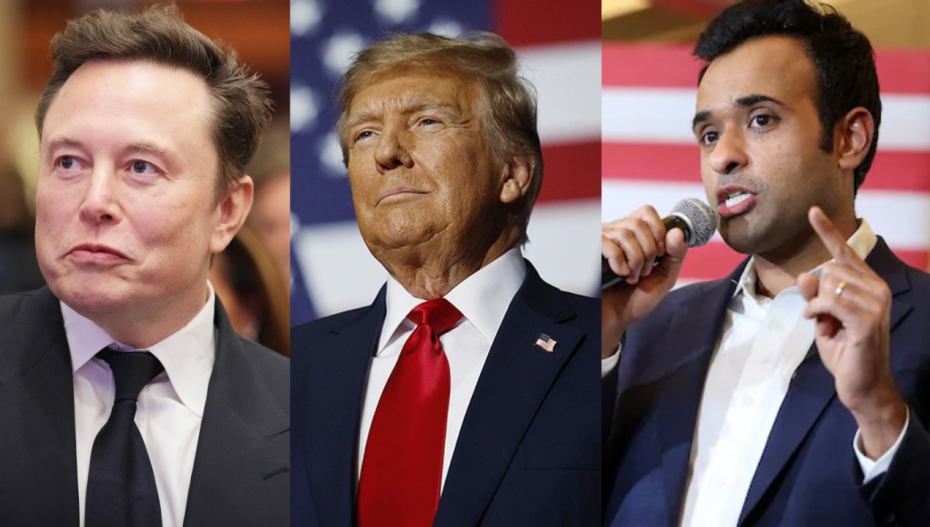The H-1B visa program caused an online debate between President-elect Donald Trump’s supporters, exposing differences within the upcoming government. The program, which was created to attract talented people to the US, became the subject of heated debates between prominent Republicans and Trump supporters.
Indian-origin Vivek Ramaswamy, chosen by Trump to lead efforts to reduce government spending, sparked controversy with his comments on American culture.
In a post on X (formerly Twitter), Ramaswamy argued that cultural shortcomings were to blame for US firms relying on foreign talent through H-1B visas. “Our American culture has venerated mediocrity over excellence,” he wrote, asserting that foreign workers benefit the US economy.
Ramaswamy criticised the prioritisation of social achievements over academic and technical excellence, stating, “A culture that celebrates the prom queen over the math olympiad champ or the jock over the valedictorian, will not produce the best engineers.”
His remarks drew backlash from anti-immigration Trump supporters, prompting him to clarify his position. He later described the H-1B system as “badly broken” and called for its replacement.
The debate escalated online, with mainstream Republicans and far-right influencers joining the fray. Steve Bannon, a staunch Trump ally, criticised support for the visa programme on his podcast, calling it a “total scam.”
Ramaswamy’s stance found an unlikely ally in Elon Musk, a tech billionaire appointed to co-direct Trump’s proposed “Department of Government Efficiency.”
Musk defended the programme, stating it attracts the “top ~0.1% of engineering talent” and compared America to a sports team seeking to maintain its competitive edge. However, critics highlighted job postings at Musk’s companies showing H-1B hires earning salaries significantly lower than expected for elite talent, accusing him of using the programme to suppress wages for US-born workers.
Nikki Haley, former US ambassador to the United Nations and a previous Republican presidential candidate, criticised the reliance on foreign workers. “There is nothing wrong with American workers or American culture,” she posted on X. “We should be investing and prioritising in Americans, not foreign workers.”
Haley, like Ramaswamy, is the child of Indian immigrants.
Far-right activist Laura Loomer also attacked the visa programme, using racist rhetoric to denounce Indian immigrants and criticising the appointment of Sriram Krishnan, an India-born entrepreneur, as a White House advisor on artificial intelligence.
Loomer accused Musk of censorship after her posts faced restrictions on X. She further claimed, “Free speech is an illusion,” while suggesting Musk’s influence over Trump could undermine his presidency.
The H-1B visa programme issues 65,000 visas annually, with an additional 20,000 for applicants holding US master’s degrees. Research indicates that 73% of these visas are issued to Indian nationals and 12% to Chinese citizens.
Trump, who has consistently criticised the H-1B programme, tightened its eligibility during his first term and promised swift deportations of undocumented immigrants upon taking office. Despite his opposition to the visa system, his vice-president-elect JD Vance has ties to the tech industry and previously invested in startups employing H-1B visa holders.
Addressing claims of undue influence by Musk and other billionaires, Trump denied being under their sway during a speech at AmericaFest in Arizona. “They’re on a new kick,” he said. “All the different hoaxes. The new one is that President Trump has ceded the presidency to Elon Musk. No, no, that’s not happening. He’s not gonna be president.”
Also Read: Virtual War of Words: Anupam Kher vs Hansal Mehta over The Accidental Prime Minister













